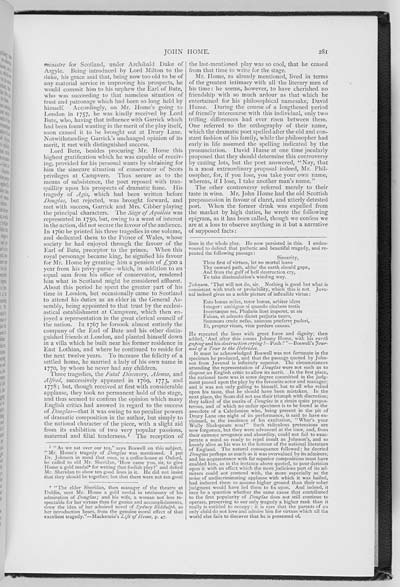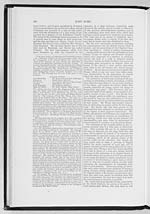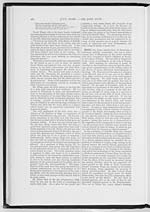28r
ministre for Scotland, under Archibald Duke of
Argyle. Being introduced by Lord Milton to the
duke, his grace said that, being now too old to be of
any material service in improving his prospects, he
would commit him to his nephew the Earl of Bute,
who was succeeding to that nameless situation of
trust and patronage which had been so long held by
himself. Accordingly, on Mr. Home's going to
London in 1757, he was kindly received by Lord
Bute, who, having that influence with Garrick which
had been found wanting in the merit of the play itself,
soon caused it to be brought out at Drury Lane.
Notwithstanding Garrick's unchanged opinion of its
merit, it met with distinguished success.
Lord Bute, besides procuring Mr. Home this
highest gratification which he was capable of receiv-
ing, provided for his personal wants by obtaining for
him the sinecure situation of conservator of Scots
privileges at Campvere. Thus secure as to the
means of subsistence, the poet reposed with tran-
quillity upon his prospects of dramatic fame. His
tragedy of Agis, which had been written before
Douglas, but rejected, was brought forward, and
met with success, Garrick and Mrs. Cibber playing
the principal characters. The Siege of Aquileia was
represented in 1750, but, owing to a want of interest
in the action, did not secure the favour of the audience.
In 1760 he printed his three tragedies in one volume,
and dedicated them to the Prince of Wales, whose
society he had enjoyed through the favour of the
Earl of Bute, preceptor to the prince. When this
royal personage became king, he signified his favour
for Mr. Home by granting him a pension of �300 a
year from his privy-purse�which, in addition to an
equal sum from his office of conservator, rendered
him what in Scotland might be considered affluent.
About this period he spent the greater part of his
time in London, but occasionally came to Scotland
to attend his duties as an elder in the General As-
sembly, being appointed to that trust by the ecclesi-
astical establishment at Campvere, which then en-
joyed a representation in the great clerical council of
the nation. In 1767 he forsook almost entirely the
company of the Earl of Bute and his other distin-
guished friends at London, and planted himself down
in a villa which he built near his former residence in
East Lothian, and where he continued to reside for
the next twelve years. To increase the felicity of a
settled home, he married a lady of his own name in
1770, by whom he never had any children.
Three tragedies, the Fatal Discovery, Alonzo, and
Alfred, successively appeared in 1769, 1773, and
1778; but, though received at first with considerable
applause, they took no permanent hold of the stage,
and thus seemed to confirm the opinion which many
English critics had avowed in regard to the success
of Douglas�that it was owing to no peculiar powers
of dramatic composition in the author, but simply to
the national character of the piece, with a slight aid
from its exhibition of two very popular passions,
maternal and filial tenderness.1 The reception of
1 "As we sat over our tea," says Boswell on this subject,
"Mr, Home's tragedy of Douglas was mentioned. I put
Dr. Johnson in mind that once, in a coffee-house at Oxford,
he called to old Mr. Sheridan, 'How came you, sir, to give
Home a gold medal* for writing that foolish play?' and defied
Mr. Sheridan to show ten good lines in it. He did not insist
that they should be together; but that there were not ten good
* "The elder Sheridan, then manager of the theatre at
Dublin, sent Mr. Home a gold medal in testimony of his
admiration of Douglas; and his wife, a woman not less re-
spectable for her virtues than for genius and accomplishments,
drew the idea of her admired novel of Sydney Biddulph, as
her introduction bears, from the genuine moral effect of that
excellent tragedy."�Mackenzie's Life of Home, p. 47.
the last-mentioned play was so cool, that he ceased
from that time to write for the stage.
Mr. Home, as already mentioned, lived in terms
of the greatest intimacy with all the literary men of
his time: he seems, however, to have cherished no
friendship with so much ardour as that which he
entertained for his philosophical namesake, David
Hume. During the course of a lengthened period
of friendly intercourse with this individual, only two
trifling differences had ever risen between them.
One referred to the orthography of their name,
which the dramatic poet spelled after the old and con-
stant fashion of his family, while the philosopher had
early in life assumed the spelling indicated by the
pronunciation. David Hume at one time jocularly
proposed that they should determine this controversy
by casting lots, but the poet answered, "Nay, that
is a most extraordinary proposal indeed, Mr. Phil-
osopher, for, if you lose, you take your own name,
whereas, if I lose, I take another man's name."
The other controversy referred merely to their
taste in wine. Mr. John Home had the old Scottish
prepossession in favour of claret, and utterly detested
port. When the former drink was expelled from
the market by high duties, he wrote the following
epigram, as it has been called, though we confess we
are at a loss to observe anything in it but a narrative
of supposed facts:
lines in the whole play. He now persisted in this. I endea-
voured to defend that pathetic and beautiful tragedy, and re-
peated the following passage:
Sincerity,
Thou first of virtues, let no mortal leave
Thy onward path, altho' the earth should gape,
And from the gulf of hell destruction cry,
To take dissimulation's winding way.
Johnson. 'That will not do, sir. Nothing is good but what is
consistent with truth or probability, which this is not. Juve-
nal indeed gives us a noble picture of inflexible virtue:
Esto bonus miles, tutor bonus, arbiter idem
Integer: ambigu� si quando citabere testis
Incertaeque rei, Phalaris licet imperet, ut sis
Falsus, et admoto dictet perjuria tauro,
Summum crede nefas, animam pr�ferre pudori,
Et, propter vitam, vit� perdere causas.'
He repeated the lines with great force and dignity; then
added, 'And after this comes Johnny Home, with his earth
gaping and his destruction crying!�Pooh!'"�Boswell's Jour-
nal of a Tour to the Hebrides.
It must be acknowledged Boswell was not fortunate in the
specimen he produced, and that the passage quoted by John-
son from Juvenal is infinitely superior. The circumstances
attending the representation of Douglas were not such as to
dispose an English critic to allow its merit. In the first place,
the national taste was in some degree committed in the judg-
ment passed upon the play by the favourite actor and manager;
and it was not only galling to himself, but to all who relied
upon his taste, that he should have been mistaken. In the
next place, the Scots did not use their triumph with discretion;
they talked of the merits of Douglas in a strain quite prepos-
terous, and of which no unfair specimen is to be found in the
anecdote of a Caledonian who, being present in the pit of
Drury Lane one night of its performance, is said to have ex-
claimed, in the insolence of his exultation, "Whar's your
Wully Shakspeare nou?" Such ridiculous pretensions are
now forgotten, but they were advanced at the time, and, from
their extreme arrogance and absurdity, could not fail to exas-
perate a mind so ready to repel insult as Johnson's, and so
keenly alive as his was to the honour of the national literature
of England. The natural consequence followed: he decried
Douglas perhaps as much as it was overvalued by its admirers;
and his acquaintance with far superior compositions must have
enabled him, as in the instance above quoted, to pour derision
upon it with an effect which the more judicious part of its ad-
mirers could not contend with, the more especially as the
noise of undiscriminating applause with which it was hailed,
had induced them to assume higher ground than their sober
judgment would have led them to fix upon. And indeed, it
may be a question whether the same cause that contributed
to the first popularity of Douglas does not still continue to
operate, preserving to our only tragedy a higher rank than it
really is entitled to occupy: it is rare that the parents of an
only child do not love and admire him for virtues which all the
world else fails to discover that he is possessed of.

![]() Universal Viewer |
Universal Viewer | ![]() Mirador |
Large image | Transcription
Mirador |
Large image | Transcription
![]()

